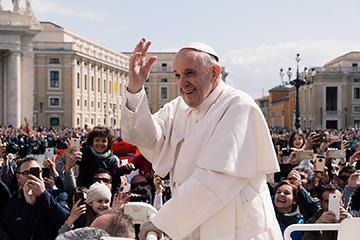Islamic Relief USA fights against Islamophobia through its global, humanitarian and interfaith efforts


Last month, a gunman killed 49 people while they were worshipping in Muslim mosques in New Zealand. The CEO of Islamic Relief USA (IRUSA), an international humanitarian organization, released a statement in response to the mass shooting.
“Today, we grieve the loss of innocent lives who were practicing their faith in Christchurch, New Zealand,” said Sharif Aly, CEO of IRUSA. “We cannot address this horrific tragedy against Muslims without addressing the root causes of racism, bigotry, xenophobia, anti-Semitism, Islamophobia and other forms of hatred and violence.”
“We cannot allow fear and the normalization of hateful rhetoric and vitriol to overpower our humanity. During these times of heightened divisiveness and hostility being perpetuated by various political and social agendas, we must continue to stand firm in our commitment to peaceful co-existence and mutual understanding. I ask you today and always to work in the tradition of our Islamic faith, which compels us to learn from one another, not to despise one another,” said Aly.
IRUSA is a humanitarian organization that works to relieve poverty and suffering worldwide. The organization also hopes that its work will help encourage peaceful relations between people of different backgrounds and faiths and eliminate racism and Islamophobia.
When asked how IRUSA is working on fighting Islamophobia, Christina Tobias-Nahi, Director of Public Affairs at IRUSA said, “To be honest, we just keep doing the work that we are doing, because we hope that speaks for itself. We try to get the media to cover the good and positive work that we are doing, but that has been our biggest challenge. We really feel like that is the way to change the narrative. It’s really just by doing the work.”
At the beginning of March, the Vatican organized an international, interfaith conference titled “Religions and Sustainable Development Goals (SDGs): Listening to the Cry of the Earth and the Poor”. IRUSA was among several hundred organizations and individuals invited to the conference, but it was one of the few voices that was able to speak in the plenary session.
“Since it was International Women’s Day, I spent most of my address talking about our gender justice work,” said Tobias-Nahi. “I also spent a good time talking about the media and how the media likes to amplify when religion drives conflict or drives migration, but the media does not actually pick up the positive news stories about when faith communities are working together.”
An example of IRUSA’s gender justice work includes the Islamic Declaration of Gender Justice which is a document that calls upon other organizations around the world to work together “to challenge harmful cultural practices and engrained social tradition using faith principles of justice and balance.” The declaration affirms that gender-based discrimination has no place in the Muslim religion.
IRUSA has multiple programs and projects related to gender justice. One of those interfaith projects is in Liberia where IRUSA is training religious leaders, from both the Christian and Muslim faiths, to work with their congregations and teach then about gender justice and teach against gender-based violence.
“One of the main things that came out of this international conference is that we are not even close to meeting the SDGs by 2030 unless everybody is involved,” said Tobias-Nahi. “It is going to be imperative that faith organizations, religious leaders and charities make this a priority and UN actors and governments work with us as true partners.”
In 2018, IRUSA attended the G20 Interfaith Forum in Buenos Aires, Argentina. While at the forum, Tobias-Nahi participated in a video along with Sharon Eubank, a representative from The Church of Jesus Christ of Latter-day Saints, and discussed why it is important for governments, policy makers, faith leaders and the like to work together to end poverty.
VIDEO: https://www.youtube.com/watch?v=9LKvQeOGvqI
“Everyone is doing the work but often in their own silos which might not always be efficient. There are definitely more opportunities to partner and through these interfaith conferences and forums, we have these chances to meet each other, network and see what others are doing, where there is overlap and build some trust.”


